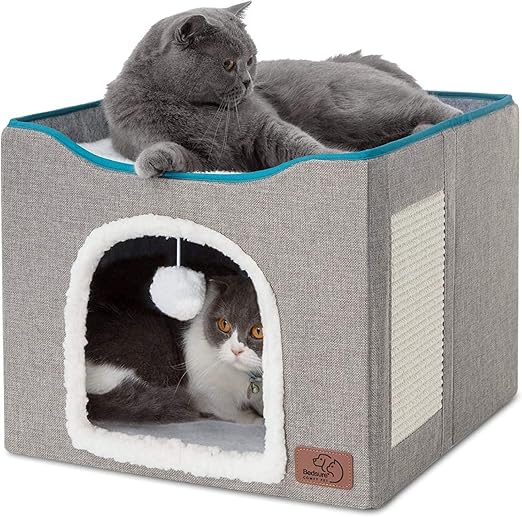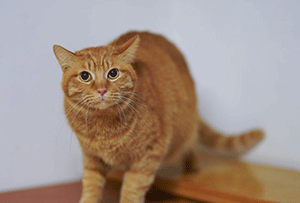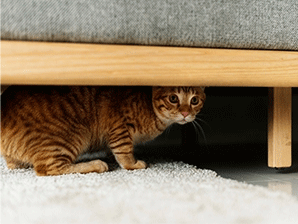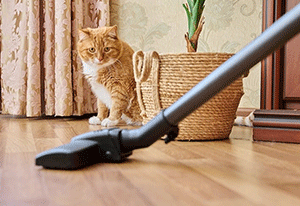One of the most difficult aspects of owning a cat is that you can't always tell how it is feeling. Since cats are often quiet, it can be challenging to determine whether they are uncomfortable or feeling vulnerable. The only thing we can do is learn to understand their body-language, facial expressions, and vocalizations.
Thankfully, fear is one of the most straightforward emotions to interpret in cats. This article will discuss how to know if your cat is experiencing fear and offer advice on soothe a tense, nervous feline.
Other Topics You Might Like
Helpful Products You Might Like

Bedsure Cat Beds with Fluffy Ball Hanging and Scratch Pad

FELIWAY Classic Cat Calming Pheromone Diffuser

Comfort Zone Cat Calming Collar
"(Paid Links)" 
Body Language
The simplest approach to determining whether your cat is afraid is to observe its body language. When a cat is scared, it will either run away, freeze in place, or go into self-defense mode. Cats can puff up their fur, stoop, arch their back, and tuck or flick their tail around or beneath their body.
The cat appears larger and more intimidating to whatever is threatening it because of the way its back arches and its fur puffs out. Some cats flick their tails from side to side, flatten their ears, or move them back and forth. The eyes of a scared cat will frequently widen.
Because they frequently overlap, it can be challenging to properly interpret a scared cat's body language clues.

Vocalizations
A cat may make various vocalisations to show that it is afraid or threatened. If you hear your cat snarling, hissing, or meowing in a different tone, it is probably scared and prepared to protect itself.
Hiding

A scared cat would naturally look for a safe haven whenever they feel threatened. If your cat is scared, they might flee and hide under a sofa, in a box, beneath a bed, or wherever else they can escape the terrifying object.
Going Outside the Litter Box
Frightened or nervous cats frequently urinate or defecate outside the litter box. Since this is a typical symptom of cat anxiety, it might be wise to take your cat to the vet to determine the cause if it occurs frequently.
What Are Cats Afraid Of?
There are several reasons why cats become afraid. The presence of other cats on their territory, other animals, unfamiliar persons, loud or abrupt noises, or unfamiliar locations and scents are all common triggers for a cat's fear response or anxiety. Because cats are such predictable creatures, any disruption to their routine—such as a visit to the veterinarian—is enough to make them nervous.

How to handle aggression
You should consult a qualified animal behavior specialist if your cat threatens you, another person, or another animal. Meanwhile, restrict your cat to a section of the house where you limit your interactions with her and have someone responsible watch over her to keep everyone safe. Cat scratches and bites are dangerous, and can quickly get sick. You should report bites to your local animal control organization to isolate your cat and monitor it for rabies symptoms.
Please consider having your cat humanely euthanized if you are unable to engage with a professional animal behavior specialist and you are unable to keep your cat away from the stimuli that trigger her aggressive behavior. Your top priority should be your cat's safety and protecting any other animals and people she may come into contact with.
